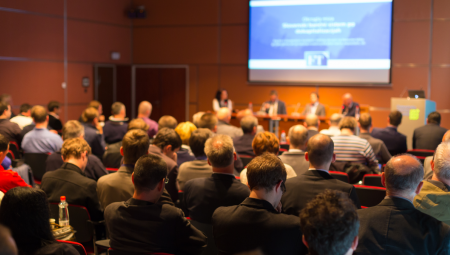 International. With the presence of a large group of participants, the global smart stadium market is showing a highly competitive business landscape, a new research report from Zion Market Research (ZMR) finds.
International. With the presence of a large group of participants, the global smart stadium market is showing a highly competitive business landscape, a new research report from Zion Market Research (ZMR) finds.
As estimated in this report, the global smart stadium market reached US$4.59 billion in 2017. Witnessing a tremendous increase during the period from 2017 to 2023, revenue in this smart stadium market is expected to reach US$17.18 billion by the end of the forecast period.
Huawei Technology Co. Ltd., Intel Corporation, Cisco System Incorporation, International Business Machine Corporation and Fujitsu are some of the key suppliers of smart stadiums worldwide. These players are aggressively focusing on innovation as well as the inclusion of advanced technologies in their existing products. In the coming years, they are also expected to take on partnerships and mergers and acquisitions as their key strategy for business development, the smart stadium market study states.
Citing an example, in August 2018, Elon Musk's Boring Company announced the construction of a 3.6-mile hyperlink linking downtown Los Angeles to Dodger Stadium via an underground tunnel. The firm reportedly predicts that the cycle can displace nearly 1,400 people to the stadium game, with a total capacity to hold approximately 2,500,000 people each year. Analysts anticipate that the move may prove highly beneficial for the growth of the smart stadium market size in the coming years.
Smart Stadium Market to Rack Up Massive Profits with Growing Popularity of Sports
"The rise in popularity of sports and other related events across the globe is forecast to drive the development of the smart stadium market in the coming years," says the author of this study. Apart from this, the current digital transformation witnessed in the rise of sports activities is likely to influence the evolution of the smart stadium market. In addition, the need to improve customer relationship management, along with the need to attract visitors and spectators through special offers, will have an additional impact on the growth of the smart stadium business in the coming years.
However, rising investment costs coupled with conventional sports stadium infrastructure are projected to inhibit the progress of the smart stadium market in the coming years.
Regionally, Europe has led the global smart stadium market and is anticipated to continue in the dominant position in the coming years, the smart stadiums market study states. The huge demand for smart stadiums, coupled with the large presence of sports sponsors observed across the region, is the key factor behind Europe's smart stadium market dominance. The large number of market participants that are based in Europe is another important factor supporting the growth of this regional smart stadium market.














